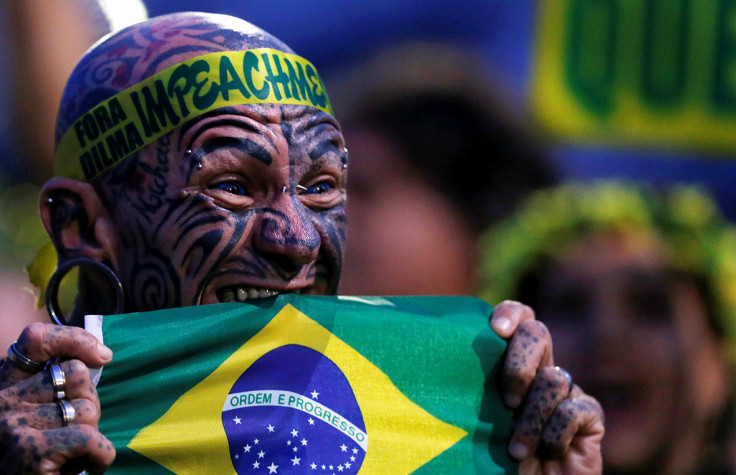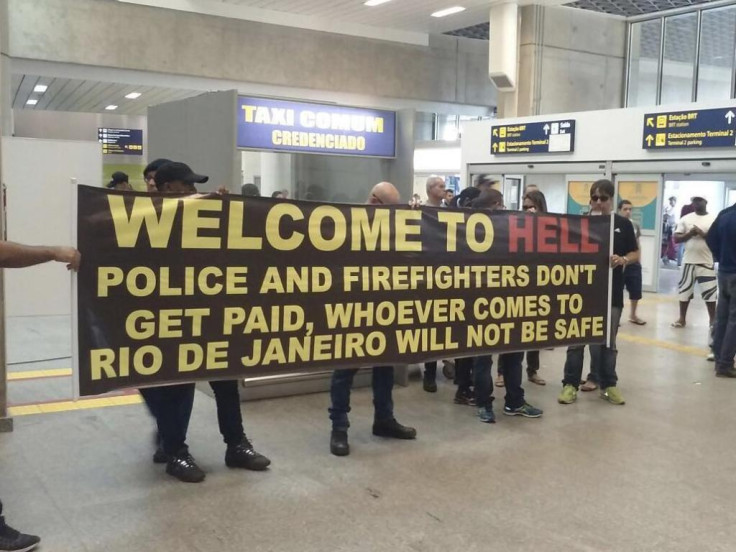Brazil: Dilma Rousseff's impeachment vote planned after Olympics as Rio gets $860m emergency loan
Mutilated body near Olympics venue unnerved Rio already facing security threats and political crisis.

With the Olympic Games a month away, Brazil's Senate has announced that the final impeachment vote for suspended President Dilma Rousseff will take place after the end of August, after the Rio de Janeiro event.
As the global spotlight falls on Rio, the state has been in the news for many of wrong reasons of late, fuelled by worries regarding safety and security at the world's premier sporting event, budget shortfalls and a major political scandal.
The discovery of parts of a mutilated body washed up on the sands of Copacabana beach, just meters from where beach volleyball athletes will compete was the latest incident to unnerve the city on Wednesday.
Brazil's Senate president announced the vote on removing suspended president Dilma Rousseff from office will come just days after the end of the 5-21 August Olympic Games, the first ever to be held in South America.
Senate President told journalists in the capital Brasilia on Thursday (30 July) that the impeachment vote would take place sometime between 25 and 27 August. Local media reported that the Senate, which had initially considered voting on 22 August, rejected the date as too close to the sporting event, for fear of the political instability ruining the Games' atmosphere.

Rousseff is accused of having used funds from state-run banks to cover government expenses.
It is alleged that this creative accounting, known as pedalling or 'pedaladas', allowed Rousseff to claim victory in the 2014 general election, and that had the true state of the budget been know, this would not have happened.
Rousseff and her party, the Workers' Party, had claimed she was not the first president responsible for pedaladas, however this is believed to have occurred on a far larger scale under Rousseff than former presidents.
The country's first female president, who was elected in 2011, also claimed that the accusations against her and any potential impeachment were equivalent 'to a coup d'etat', denying wrongdoing.

State pays out $860m emergency loan for security
Brazil is hosting the grand sporting event amid an economic recession that has drained public finances. Citing budget shortfalls as threats to security and mobility, Rio de Janeiro's acting governor Francisco Dornelles warned on Tuesday (28 June 2016) that the Brazil event could be a "big failure" after the state declared a state of fiscal emergency last week.
On 30 June, however, Brazilian federal government has disbursed an emergency loan of 9bn Brazilian real ($860m, £643m, €772m) in an effort to guarantee safety after police in Rio de Janeiro voicing concerns over dangerous lack of resources.
Although most of the public funding for the Games is sponsored by the Rio city government and private companies, the state is responsible for funding the day-to-day transport and security services during the event.
With a deficit budget, Rio had to slash and delay the salaries of its state employees, including those of the police. Several police patrol cars were halted and helicopters grounded in a bid to save on fuel, as they lack money to buy even the basics.
Amid rising crime, around 85,000 police and soldiers are expected to be deployed for the event, which is nearly twice the number of troops that London had during the 2012 Olympics. Rio is expected to receive 350,000 to 500,000 foreigner visitors during the games.
© Copyright IBTimes 2025. All rights reserved.



















